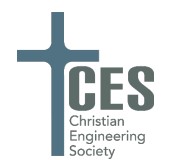Document Type
Paper
Abstract
Each year, nearly 300,000 US college students study abroad and many more go on short-term service trips. The ethic of using engineering skills to serve developing communities abroad is strong in the engineering field. For Christian students and Christian colleges, this service can also integrate with their mission to serve God by serving and evangelizing others, whether motivated by charity, philanthropy, or scriptural mandate. These service programs have impacted students profoundly, often changing the life course of a student. But do they positively impact the targeted communities? Is it efficient to spend $30,000 in travel money to send an unskilled student team to drill a well that could be constructed better by a local well driller for $2000? Certainly it’s a great experience for the students, but what about the community? Does it in fact engender passiveness, cynicism, and dependency by the local partners? If we conclude that it’s inefficient, that we should just send money so a local business or an experienced NGO to drill the well, then do we deny the students a potentially life-changing opportunity?
What is the role of student groups and engineering in academia in serving the poor? How might the approach at a Christian college be different from a state university? This paper discusses the motivations and practicalities of student projects for development and how they integrate with faith, scholarship, and education. Experiences and lessons learned from implementing international community development into the engineering curriculum at The University of Arkansas and at Messiah College are presented.
Creative Commons License

This work is licensed under a Creative Commons Attribution-Noncommercial-No Derivative Works 4.0 License.
Copyright
© 2017 Thomas S. Soerens. All rights reserved.
Publication Date
June 2017
Beyond Voluntourism: Examining the Motivations and Roles of Engineering Student Groups in International Development
Each year, nearly 300,000 US college students study abroad and many more go on short-term service trips. The ethic of using engineering skills to serve developing communities abroad is strong in the engineering field. For Christian students and Christian colleges, this service can also integrate with their mission to serve God by serving and evangelizing others, whether motivated by charity, philanthropy, or scriptural mandate. These service programs have impacted students profoundly, often changing the life course of a student. But do they positively impact the targeted communities? Is it efficient to spend $30,000 in travel money to send an unskilled student team to drill a well that could be constructed better by a local well driller for $2000? Certainly it’s a great experience for the students, but what about the community? Does it in fact engender passiveness, cynicism, and dependency by the local partners? If we conclude that it’s inefficient, that we should just send money so a local business or an experienced NGO to drill the well, then do we deny the students a potentially life-changing opportunity?
What is the role of student groups and engineering in academia in serving the poor? How might the approach at a Christian college be different from a state university? This paper discusses the motivations and practicalities of student projects for development and how they integrate with faith, scholarship, and education. Experiences and lessons learned from implementing international community development into the engineering curriculum at The University of Arkansas and at Messiah College are presented.

